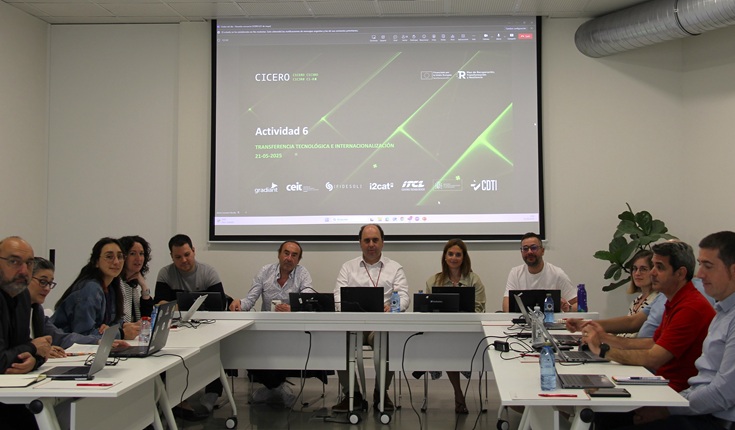The CICERO Network Strengthens Its Position as a Key Player in Cybersecurity in Spain

Led by Gradiant and comprising the technology centers CEIT, Fidesol, i2CAT, and ITCL, CICERO successfully concludes with 113 researchers, 31 scientific publications, and 9 international projects that reinforce its impact in the field of cybersecurity
Today, the partners meet in Vigo to present the final results of the initiative, highlighting the FARO projects carried out in collaboration with companies and applied in key sectors such as industry, telecommunications, and IoT environments
CICERO (Intelligent Cybersecurity Countermeasures for the Future Network) successfully comes to an end today, positioning Spain as a benchmark in applied cybersecurity research. Led by Gradiant, with the participation of CEIT, Fidesol, i2CAT, and ITCL, this CERVERA Excellence Network has boosted the industrial ecosystem by making a qualitative leap in the development of cutting-edge technologies for identification, protection, detection, response, and recovery.
With a €3.5 million investment, 113 highly qualified researchers, 31 scientific publications, and participation in over 150 training activities and technical events, CICERO represents a resounding success for the participating technology centers, establishing them as leaders in cybersecurity R&D. Moreover, the members of the CERVERA Network have registered 7 technological assets and launched 9 international projects, consolidating their positioning at both national and international levels. Recognized as a CERVERA Excellence Network, CICERO is funded by the Spanish Ministry of Science and Innovation through the Centre for the Development of Industrial Technology (CDTI).
8 FARO Projects: Innovation with Driving Force
One of the main achievements of the CICERO Network has been its contribution to the transfer of cybersecurity technologies to the industrial sector through the execution of eight FARO projects—twice the originally planned number—in collaboration with leading companies in strategic sectors such as industry, telecommunications, and IoT environments.
These projects enabled the real-world validation of CICERO technologies, demonstrating not only their technical feasibility but also their direct applicability in business environments, accelerating their technological maturity and potential for market transfer.
The FARO projects focused on the four core pillars of cybersecurity within CICERO: identification, protection, detection, response, and recovery.
As a result, CICERO has driven the development of intelligent honeypots, automated vulnerability analysis tools, and cyber intelligence solutions to anticipate threats. Security systems for networks, cyber-physical systems, and virtual environments have also been developed, along with innovations in cryptography and privacy.
Furthermore, technologies based on artificial intelligence have been designed to detect anomalies in real time, along with systems that enable rapid incident response and safe recovery of operations.
Another key achievement has been the collaboration and synergies generated to maximize innovation and socio-economic impact, enhancing effective technology transfer across various research areas. Mechanisms have also been developed to protect the intellectual property generated, including specialized training programs focused on CERVERA technologies aimed at preparing researchers and technical staff.
“The completion of CICERO not only marks the success of a collaborative project within the national ecosystem of technology centers, but also the strengthening of cybersecurity research in Europe. Together, we have developed advanced solutions that not only address current challenges, but also anticipate those of the future,” explains Juan González Martínez, Director of the Security and Privacy Area at Gradiant and coordinator of CICERO.
Red de Excelencia Cervera
